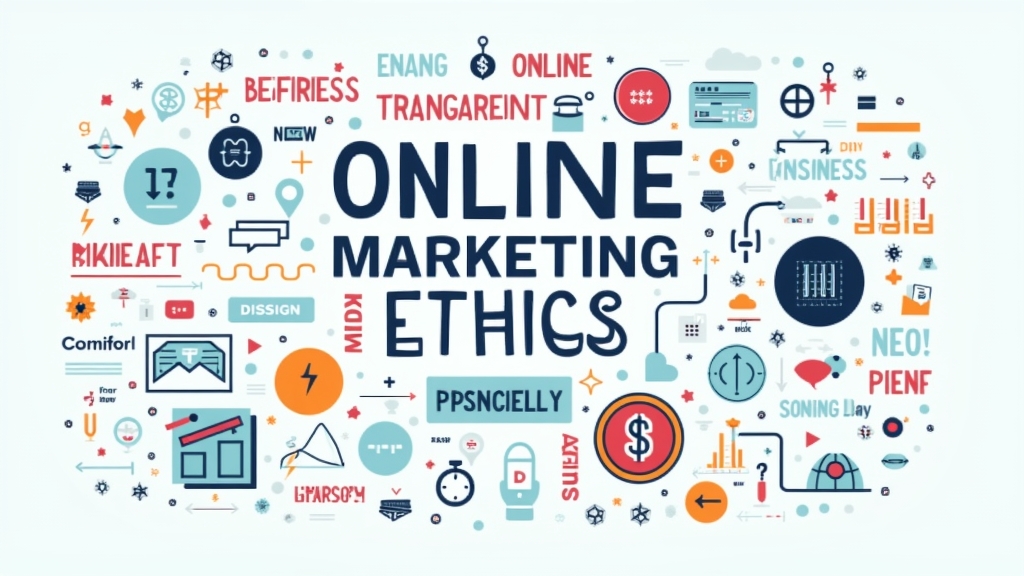Understanding Online Marketing Ethics: A Comprehensive Guide
Introduction
In today’s digital landscape, online marketing plays a crucial role in how businesses connect with consumers. With the rise of social media and e-commerce, understanding online marketing ethics has never been more important. Ethical practices not only foster trust between brands and consumers but also ensure that marketing strategies are fair and transparent. This guide will explore the principles of online marketing ethics, their significance, common issues faced, best practices to follow, and the impact of regulations.
Defining Online Marketing Ethics
What is Online Marketing Ethics?
Online marketing ethics refers to the moral principles that guide marketers in their efforts to promote products or services through digital channels. It encompasses honesty, transparency, respect for consumer privacy, and adherence to legal standards. By following these ethical guidelines, marketers can create campaigns that are not only effective but also responsible.
Key Principles of Ethical Marketing
The key principles of ethical marketing include honesty, integrity, fairness, transparency, and respect for consumer rights. Marketers should provide truthful information about their products and avoid misleading claims. They must also treat all customers fairly and protect their personal data while ensuring clear communication about how it will be used.
The Importance of Ethical Practices in Online Marketing
Building Trust with Consumers
Trust is essential in any business relationship. When you adhere to ethical practices in your online marketing efforts, you build credibility with your audience. Consumers are more likely to engage with brands they trust because they feel safe knowing that their interests are prioritized.
Enhancing Brand Reputation
A strong reputation can set your brand apart from competitors. Ethical marketing helps enhance your brand’s image by demonstrating commitment to responsible practices. Positive word-of-mouth from satisfied customers can lead to increased loyalty and sales.
Compliance with Legal Standards
Adhering to ethical standards ensures compliance with various laws governing advertising and consumer protection. This not only protects your business from legal repercussions but also promotes a fair marketplace where consumers can make informed decisions.
Common Ethical Issues in Online Marketing
Misleading Advertising and False Claims
One major issue in online marketing is misleading advertising. Brands sometimes exaggerate product benefits or make false claims that mislead consumers into making purchases based on incorrect information.
Privacy Concerns and Data Protection
With increasing amounts of personal data being collected online, privacy concerns have become paramount. Marketers must navigate these issues carefully by ensuring they obtain consent before collecting data and using it responsibly.
Manipulative Marketing Techniques
Some marketers resort to manipulative techniques such as fear-based advertising or exploiting emotional triggers without regard for consumer well-being. These tactics can harm relationships between brands and consumers over time.
Best Practices for Ethical Online Marketing
Transparency and Honesty in Advertising
Being transparent about what you offer is vital for building trust with your audience. Always provide accurate descriptions of products or services without hiding any potential downsides.
Responsible Use of Consumer Data
When collecting consumer data for targeted advertising or market research purposes, always prioritize user consent and security measures to protect sensitive information from breaches or misuse.
Engaging with Audiences Respectfully
Respectful engagement involves listening actively to customer feedback while responding thoughtfully rather than defensively when addressing concerns raised by users on social media platforms or review sites.
The Role of Regulations and Guidelines
Overview of Relevant Laws (e.g., GDPR, CAN-SPAM Act)
Regulations like the General Data Protection Regulation (GDPR) enforce strict rules regarding data collection across Europe while similar laws exist within U.S jurisdictions such as the CAN-SPAM Act which governs email communications—ensuring marketers operate ethically within legal frameworks designed primarily around protecting consumer rights.
Industry Standards and Self-Regulation
Many industries have established self-regulatory organizations that set ethical guidelines specific to their field—encouraging companies voluntarily adopt higher standards beyond mere compliance thus fostering greater accountability amongst practitioners overall!
The Impact of Social Media on Marketing Ethics
The Challenges Posed by Influencer Marketing
Influencer marketing presents unique challenges related specifically towards authenticity; followers may struggle discerning genuine endorsements versus paid promotions leading them feeling deceived if influencers fail disclose sponsorships adequately!
Addressing Misinformation and Fake News
Social media platforms often serve as breeding grounds misinformation which complicates matters further; marketers need remain vigilant combating false narratives surrounding products/services they promote while educating audiences effectively about distinguishing fact from fiction!
Conclusion
In conclusion, adhering strictly ethical standards within online marketing remains imperative for fostering long-term success! By prioritizing transparency & responsibility throughout campaigns—not only do we cultivate stronger relationships our customers—but we contribute positively towards shaping an industry built upon mutual respect & trustworthiness moving forward!
📢 Explore More: Continue Your Journey!
If this article helped you understand better how ethics play a role in online marketing strategies check out The Power of Content Creation! It covers essential insights into creating engaging content while maintaining high ethical standards throughout your promotional efforts.














![NEEWER 55W 18"/45cm Ring Light Kit [New Version], 5600K Dimmable ...](https://m.media-amazon.com/images/I/414QLqvZWLL._AC_.jpg)








